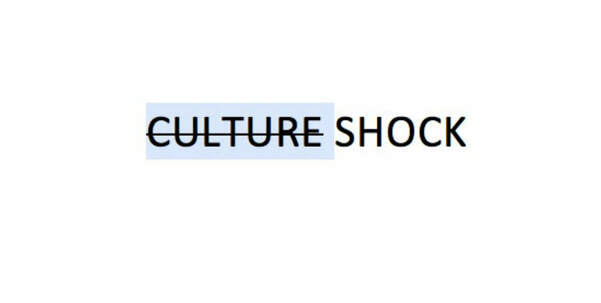 Cultural training is an attempt to create predictability in people in order to access some sense of control when interacting with different cultures. But in doing so we have at times made other cultures so caricatured and predictable that the training comes off as tacky, misinformed, outdated and, in some cases, actually offensive. Take for example an actual email I received from a very reputable cultural training firm about doing business in Poland. Being Polish-born, I was instantly curious as to the insights they had provided. The email read as follows: (FROM THE EMAIL) Poland Culture Quiz Question: “The business meeting has begun, and although it is only 9:30 in the morning, shot glasses have appeared on the table. A toast is now being made in your honor. You are expected to drink the vodka. Glasses are raised. What do you do?” Answer: “Expect to be offered a shot of vodka or schnapps at just about any hour of day or night, and be prepared to honor the toast with a toast back. When a toast is made, from the moment the glass is raised off the table to the moment it is placed back down, NEVER break eye contact with your toasting colleague.” I have no idea of whom this trainer is speaking but, in my entire life, I have never seen anyone in Poland do business at 9:30 AM over alcohol. Period. Are there drinkers in Poland? Yes. Is there vodka in Poland? Yes. Either this trainer is correct or the majority of Poles are just not following their own proper etiquette. How would you feel if we altered the content a bit? Doing Business in America. Question: “The business meeting has begun, and although it is only 9:30 in the morning, shotgun rounds have appeared on the table. A shotgun is now being fired in your honor. You are expected to shoot the gun. Guns are raised. What do you do?" Answer: “Expect to be offered shotgun rounds at just about any hour of the day or night, and be prepared to honor the toast with a lock-and-load back. When a toast is made, from the moment the gun is raised off the table to the moment it is placed back down, NEVER break eye contact with your toasting colleague.” From a brilliant past of insightful minds such as Hall, Hofstede, and Goffman, to name a few, the standards of cultural understanding have devolved into this kind of cartoon-like depiction of cultures created using ingredients of the lowest quality and most sugar-high fun facts. Our cultural diet is suffering and we need something organic to replace the junk-food fun facts or else we will never succeed in properly mitigating or eliminating culture shock. Keep in mind, I am not scouring the fringes of our society for an example of reckless stereotypes. That email was from one of the most reputable cross-cultural training firms in the industry. Those supposed facts about Poland will be seen in the future to be just as offensive as the partial list below of restrictions for female cyclists published in 1895 in the newspaper New York World by an author of unknown gender. (The actual list is approximately 4 times longer.): A List of Don'ts for Women on Bicycles Circa 1895. Don’t be a fright. Don’t faint on the road. Don’t wear a man’s cap. Don’t wear tight garters. Don’t attempt a “century.” Don’t coast. It is dangerous. Don’t boast of your long rides. Don’t wear loud hued leggings. Don’t cultivate a “bicycle face.” Don’t refuse assistance up a hill. Don’t wear clothes that don’t fit. Don’t wear laced boots. They are tiresome. Don’t imagine everybody is looking at you. I am not shocked that this was once written, but I am disheartened that it was once considered acceptable by majorities. These majorities had no idea how their attitude was damaging to some who were fighting for the most basic of freedoms. As Susan B. Anthony wrote, “Let me tell you what I think of bicycling. I think it has done more to emancipate women than anything else in the world. It gives women a feeling of freedom and self-reliance. I stand and rejoice every time I see a woman ride by on a wheel…the picture of free, untrammeled womanhood.” After reading Susan B. Anthony’s quote, go back and reread the lists of Do’s and Don’ts from the article. It should give you pause. What we find acceptable today in discussing cultures will certainly not be the norm for majorities of the future. We need to consider what it is to bring everyone together on a convergent path, rather than relegate them to broad-stroke commentary. This is why people get culture shock; from misled expectations. When adapting to change in the global world, regardless of the path you take, you may still face culture shock. Whether you are static or preparing yourself to face the future, change is a daunting force to face. When I work with clients and hear the phrase "culture shock", it’s typically used to describe the feeling of discomfort and uneasiness of being dropped off in a foreign country, unable to speak the language or communicate. But does this concept of culture shock really only pertain to the realm of travel to new countries? Is it even limited to different traditional ethnic cultures? In the United States, don’t people actually have similar reactions of culture shock when traveling from cities to rural towns, North to South, East to West, and vice versa? What about going off to college or that new corporate culture? The common element in these transitions and changes is the environment. We need to take the word culture out of culture shock as it relates to our traditional understanding of the word. For our purposes, it pertains to environments instead of cultures. When we stop trying to make people predictable and focus on the environmental cues, we may begin an entirely new process of intercultural understanding and mitigate our risks while working abroad. What do you think? This piece is reproduced with permission from "The Uniculutral Advantage: The New Cultural Roadmap For Global Business Relationships" by Andrew Miziniak. Andrew Miziniak
0 Comments
Your comment will be posted after it is approved.
Leave a Reply. |
AuthorTeam of Hansa One Directors, Trainers and Instructors sharing experiences and interests on all things cultures and languages. Archives
January 2019
Categories |
|
Service Availability may vary due to program location. Please contact your Hansa One representative for more information. Copyright Hansa One Inc. 2005-2021. Hansa One, including Orchestra SAS, the H1 Globe design, and the Hansa One logo are registered trademarks of the Hansa One Corporation, Princeton NJ Privacy Statement
|

 RSS Feed
RSS Feed